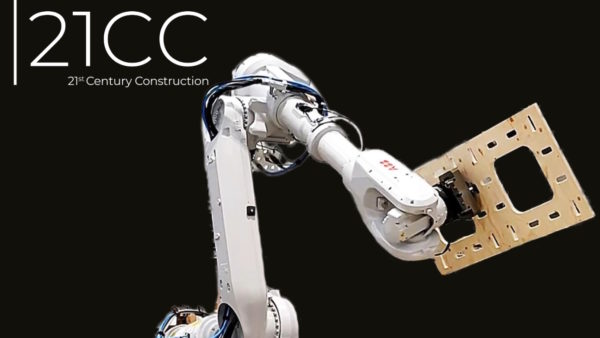
Like any complex programme, particularly one looking to the future, the challenges are partly around predicting what that future will hold and how technologies will evolve.– Professor Andy Neely, University of Cambridge
As director of the new Centre for Digital Built Britain, based at the University of Cambridge, Professor Andy Neely, pro-vice-chancellor for enterprise and business relations, sets out the next stage of the Digital Built Britain programme.
The success of Digital Built Britain (DBB) to date provides strong foundations to develop and deliver the next phase of the UK programme which brings together industry, academia and government to progress the digital agenda that will transform infrastructure and construction.
The programme has helped to define, among other things, BIM at Levels 1 and 2, and it has facilitated change in the way the public sector thinks about procuring construction and buildings. The impact has been significant and many countries across the world are looking to the UK as the arbiter of BIM and associated standards.
The Centre for Digital Built Britain (CDBB), a partnership between the Department for Business, Energy & Industrial Strategy and the University of Cambridge to support the transformation of the construction sector using digital technologies to better plan, build, maintain and use infrastructure, will drive the next phase.
A key priority for the Centre is to continue and capitalise on the work of the DBB programme and the UK BIM Task Group, which was led by Mark Bew, who is contributing to the current initiative as strategic adviser.
The Centre is bringing together industry, academia and government to explore how digital technologies will be used to improve the built environment and deliver value to the economy.
This is timely. The UK will spend around £600bn over the next 10 years on improving the built environment by investing in public and private infrastructure. If we can make the design, construction and, importantly, the ongoing operation of that infrastructure more efficient, there will be significant savings for the country.
Value is delivered at three levels: the design, build and operation. In the design phase, if we can get better digital models of buildings shared between architects and the operators of buildings, we achieve a more seamless design process.
At the construction and build phase, sharing data between builders and the manufacturers of, for example, the door frames and windows, to allow those products to come together at the right time, is crucial to optimise efficiency and productivity.
Then at the operation phase, where a lot of the lifetime cost of a building is consumed, if we can secure more energy and environmental efficiency to support sustainability, we will deliver a significant saving.
A key role for the Centre is to bring focus to what lies ahead and to consider how digital technology will shape the future. There are important questions to be asked: what will new technologies enable in the design, build and operation of buildings in the years to come? How does that digital technology play out and where can it create value for society?
Like any complex programme, particularly one looking to the future, the challenges are partly around predicting what that future will hold and how technologies will evolve.
I think it’s really important that we explore widely the different range of technologies that are emerging and think carefully about how they may impact organisations and communities.
To succeed we have to bring people with us. Whether that is individuals or organisations, we need to engage people at large to think about the ways in which technologies can help both the persons that live and work inside the buildings and also the industry that is involved in construction. Bringing all those communities together so they see value in the future application of technology is crucial.
Involving industrial partners at the Centre and working closely with government is vital. We will be running an industrial consortium programme and are open to industrial members that are interested in working with us to explore the ways digital technologies will shape the future of the built environment – we are already talking to a number of organisations which will both participate and support some of the projects involved in DBB.
Any programme addressing large-scale change must recognise the skills, capability and talent across a range of institutions. While the Centre is housed at the University of Cambridge, we are open – and running calls and competitions – to involve academics from across the UK and internationally in different programmes, projects, initiatives, networks and events.
We deliberately want a very open system – a network of people involved in thinking about the future of digital built Britain.
Digital technology is changing how we can design and operate different business models and construction is no different. It’s a fascinating time to be involved in progressing the digital agenda for the sector: the confluence of different technologies and innovations opens up new and unprecedented opportunities to think very differently about the future of construction and infrastructure in the UK and to be a world leader in this field.
To optimise opportunity we need to work together and engage a wide variety of professionals, organisations and communities in open activity. We hope you will join us.
For more information about the Centre for Digital Built Britain, or to register interest in receiving regular bulletins about activities and events, please see www.cdbb.cam.ac.uk















